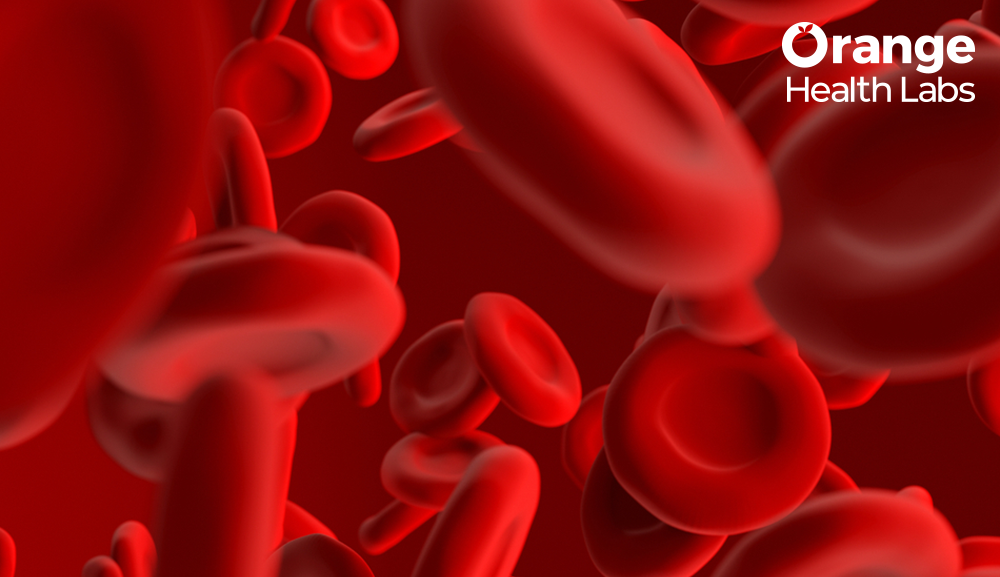Search for
Support5 Ways on How to Choose the Right Allergy Test Package for You

Allergy testing is essential for identifying the specific substances that trigger allergic reactions. By pinpointing the allergens affecting your health, healthcare providers can create personalised treatment plans to effectively manage symptoms and improve the quality of life for people with allergies. You can choose from a variety of allergy test packages to suit your individual needs, for example:
- Common Food Allergy & Intolerance Panel (checks for 16 allergens): Integrates tests for allergies and intolerances to common food allergens.
- Intolerance Package - Dairy and Gluten (checks for 17 intolerance allergens): Identifies intolerance to dairy and gluten.
- Essential Environmental Allergy Test (checks for 21 allergens): Identifies environmental allergens like pollen and dust.
- Non-Veg Food Intolerance - Essential (checks for 24 food allergens): Checks for intolerances to non-vegetarian foods.
- Drug Allergy Test (checks for 42 items): Identifies allergies to medications, distinguishing them from side effects.
- Allergy Package (asthma and respiratory) (checks for 70 allergens): Identifies allergens triggering asthma symptoms.
- Veg Food Intolerance - Advanced (checks for 92 food allergens): Focuses on intolerances to vegetarian foods.
- Allergy Food (Veg) Test (checks for 98 items): Focuses on allergies to vegetarian foods.
- Allergy (drugs & inhalants) Test (checks for 112 items): Includes tests for intolerance to drugs and inhalants.
- Food Allergy Test (checks for 114 veg and non-veg food items): Detects specific food allergies, including potential life-threatening reactions.
- Food Intolerance Package - Comprehensive (checks for 188 food allergens): Focuses on identifying intolerance to certain foods.
- Comprehensive Allergy Package (checks for 236 food and environmental allergens): Covers both food and environmental triggers.
You may choose an allergy test package that best matches your symptoms and dietary preferences for accurate allergy diagnosis and management. This article will explore how to select the appropriate allergy package for your needs.
Understand Your Allergy Symptoms
Allergies manifest uniquely in each individual, meaning that even if you and your friend have the same allergy, your symptoms may differ. For instance, if you're allergic to airborne allergens like dust, pollen, or pet dander, you might experience allergic rhinitis, commonly known as hay fever. This allergic reaction could lead to symptoms such as:
- Watery and itchy eyes
- Headaches
- Sore throat
- Sneezing, nasal congestion, or a runny nose
- Wheezing, chronic cough, or shortness of breath
Individuals who have allergies to substances like latex, fragrances, or metals (such as nickel) may experience an itchy, swollen rash on their skin. Symptoms may include:
- Hives and swelling
- Blisters on the skin or a burning sensation
- Itching
Food allergies typically exhibit symptoms within 30 minutes of eating but can occur up to two hours later. Individuals with food allergies may encounter:
- Breathing troubles like coughing, wheezing, or tightness in the chest or throat.
- Skin issues like hives, swelling or itching on the face or tongue.
- Heart-related symptoms like feeling pale, having a weak pulse, or feeling dizzy or faint.
- Stomach problems such as feeling sick, throwing up, or having stomach pain or diarrhoea.
If you notice any symptoms of allergies, it's important to consult your doctor for advice. They can identify the cause of your allergic response and decide whether an allergy test is needed. Further, recognising your symptoms can also assist in selecting the most suitable allergy test package tailored to your requirements.
Consult With an Allergist or Healthcare Provider
Allergists possess specialised expertise, enabling them to conduct allergy testing and pinpoint the root cause of your symptoms. They will be able to provide an accurate diagnosis and address the underlying causes with a personalised treatment plan tailored to your needs rather than just alleviating the symptoms. Therefore, consulting an allergist for allergy testing and diagnosis can significantly improve your well-being. When you consult an allergist, for an accurate diagnosis and effective treatment, they will:
- Check your medical history, including any family history of allergies or asthma.
- Discuss your symptoms, their frequency, triggers, and potential impact on your daily life.
- Perform a physical examination.
- Select the most appropriate allergy test package for you.
- Prepare a personalised treatment plan for you based on the test results.
Consider the Types of Allergens Tested
During an allergy test, your allergist will assess your body's response to common allergens. Common allergens encompass a variety of sources, including:
- Food items like fish, eggs, milk, peanuts, sesame seeds, soy products, and tree nuts (e.g., almonds, pecans, cashews, walnuts).
- Pollen from grasses and plants.
- Animal dander, such as fur and skin flakes from household pets like cats and dogs.
- Moulds, including mushroom varieties and mould spores.
- Insects, such as bee venom, dust mites, ant stings, tick bites, and wasp stings.
- Chemical substances, encompassing industrial and household products as well as latex rubber.
- Medications, spanning prescription drugs, over-the-counter medicines, and herbal supplements.
Therefore, it is crucial to pick the allergy test package based on your history and symptoms.
Book a allergy test package in your city: Allergy Test Package in Noida | Allergy Test Package in Bangalore | Allergy Test Package in Mumbai | Allergy Test Package in Hyderabad | Allergy Test Package in Gurgaon | Allergy Test Package in Faridabad | Allergy Test Package in Delhi
Evaluate the Testing Methodology
Your allergist will choose the best allergy tests for you based on your symptoms, age, and suspected triggers. The different types of allergy tests include:
- Skin Test:
- Skin prick (scratch) test: Tiny amounts of potential allergens are placed just under your skin to check for reactions like redness or raised spots.
- Intradermal skin test: Small amounts of allergens are injected into your skin's outer layer to detect reactions to airborne irritants, medications, or insect stings.
These tests are minimally invasive and often give quick results. They are also more economical than allergy blood tests. However, certain medications can affect skin testing, so you should inform your allergist of any medications you're on. During allergy skin testing, symptoms such as itching and skin swelling may arise. In rare instances, a severe reaction might occur, underscoring the importance of having skin tests conducted by a specialist.
- Blood Test: A blood sample is sent to a lab to measure immunoglobulin E (IgE) levels, indicating allergic responses to specific allergens. Blood testing requires only one needle prick and isn't affected by medication. However, results might take a little longer than skin tests. Additionally, blood tests might be costlier than skin tests.
Overall, the choice of an allergy test package should be made collaboratively between the patient and their allergist, considering individual preferences, medical history, and specific testing needs.
Assess Cost and Insurance Coverage
The cost of allergy tests can range from Rs. 1200 to 14999. There are no extra charges, as Orange Health provides complimentary at-home sample collection within 60 minutes of allergy test package booking, along with free online result delivery via WhatsApp or registered mail. Further, insurance coverage for allergy testing differs based on your insurance policy. Therefore, it's advisable to consult your insurer regarding your plan's policies before undergoing testing, ensuring you understand what to anticipate. This will assist you in choosing an allergy test package that fits within your budget and is compatible with your insurance coverage.
Conclusion
It's essential to consider several key factors when selecting the appropriate allergy test package. This includes evaluating your symptoms, consulting with an allergist, identifying the allergens to be tested, understanding the testing methodology, and assessing the cost. Taking proactive measures towards allergy testing can empower individuals who experience allergy symptoms to gain a better understanding of their condition and effectively manage their allergies.

Understanding the Importance of Red Blood Cell Count in Assessing Your Well-Being

Should You Really Start Your Day With Tea or Coffee?
